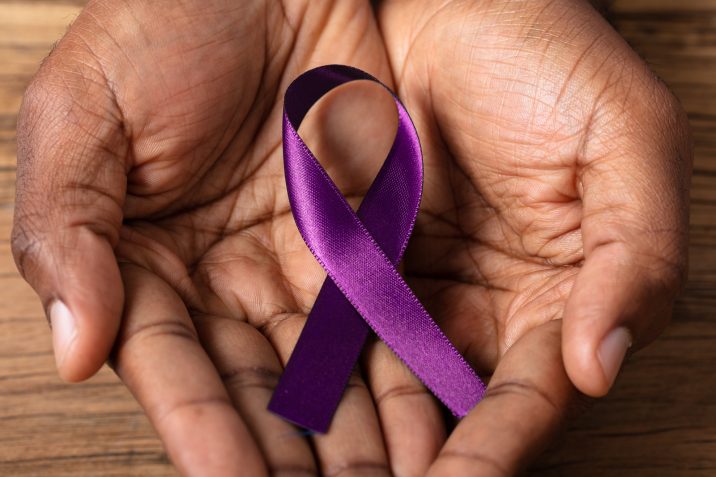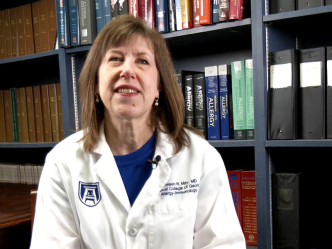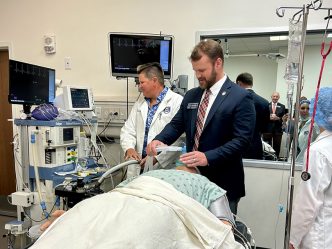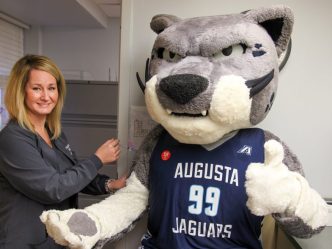Family, friends and faith. These are the things helping one father and grandfather live his life to the fullest after being diagnosed with cancer for the second time in under 10 years.
“Living with cancer shows you just how precious our time on this Earth is,” said Arthur McNitt, a survivor of both pancreatic cancer and colon cancer. “You value your family more. I love spending time with my grandkids. They are the love of my life and my wife’s life.”
McNitt’s first encounter with cancer came in 2007 when he was diagnosed with colon cancer. A simple surgery was able to remove the tumor. His second confrontation came 10 years later when a problem with constipation and unexplained weight loss landed him in the emergency room.
“My first feeling was shock,” McNitt said. “I’m not ignorant to the fact that pancreatic cancer has a very low survival rate. I can think of a few celebrities who died from it.”
At the time of his diagnosis, in July 2017, the emergency room doctor gave McNitt nine months to live. Today, we are just days away from December and McNitt is recovering from his Thanksgiving food coma and planning for Christmas with his wife, their six children and four grandchildren.
“I have people praying for me from Pennsylvania to Texas,” he said. “What’s been wonderful is reconnecting with my sister. Since my cancer diagnosis in 2007, we talk more and spend more time together.”
According to statistics from the National Cancer Institute, the number of new cases of pancreatic cancer has slowly been increasing. Unfortunately, the number of deaths is also climbing.
“For most cancers, you look at five-year survival from time of diagnosis,” said Dr. Jim Kruse, chief of Surgical Oncology at the Medical College of Georgia and Georgia Cancer Center at Augusta University. “For pancreatic cancer, the survival rate hovers between 5 percent and 7 percent. It’s really aggressive and can metastasize quickly.”
According to Kruse, another problem with the local survival rate is due to the current chemotherapy pancreatic cancer patients receive. He said it doesn’t work as well as the chemotherapies for other types of cancer with higher mortality rates.
In McNitt’s case, he’s undergone two surgeries for the cancer in his pancreas, as well as two sessions of chemotherapy. His first surgery was just one month after receiving his diagnosis. In all, he’s had to spend 22 days in hospitals over the last 10 months.
“The second surgery I had involved the Nanoknife procedure,” McNitt said. “It’s funny what you miss when you’re in the hospital — everyday things like taking a shower and eating solid food.”
Kruse and his team use the Nanoknife system to shock the cells inside a person’s tumor. The electric current causes pores inside those tumor cells to open and stay open. Keeping those pores open causes the cells to die out over time, killing a person’s tumor.
While McNitt was not expecting to be diagnosed with cancer twice during his life, he is using his journey as an opportunity to teach his children why it’s important to take an active role in their health.
“Back in 2007, when I was diagnosed with colon cancer, I told all of my children to talk with their doctor about getting exams and screenings,” he said. “A couple of my children, who used to smoke, don’t smoke any more. In my opinion, smoking is probably the worst thing you can do for your health.”
Since his Nanoknife surgery in April 2018, McNitt has undergone two scans showing he’s basically in remission.
“My tumor numbers were in the 3,000s and now they’re down to 12,” he said. “I can’t say enough good things about Dr. Kruse and the Georgia Cancer Center. He’s an excellent surgeon and I enjoyed working with his staff.”
 Augusta University
Augusta University





